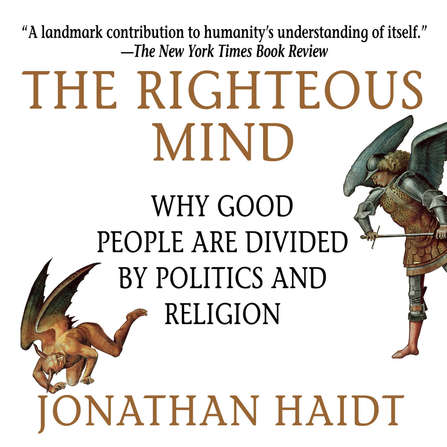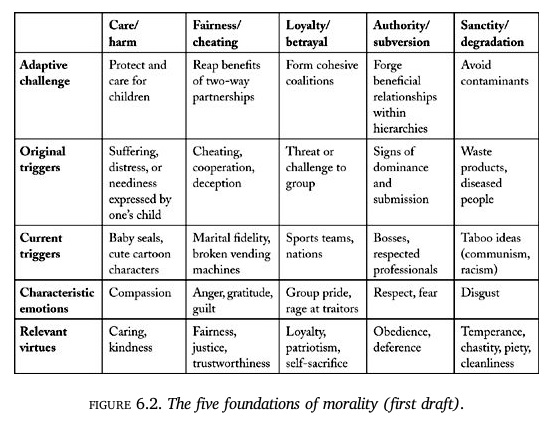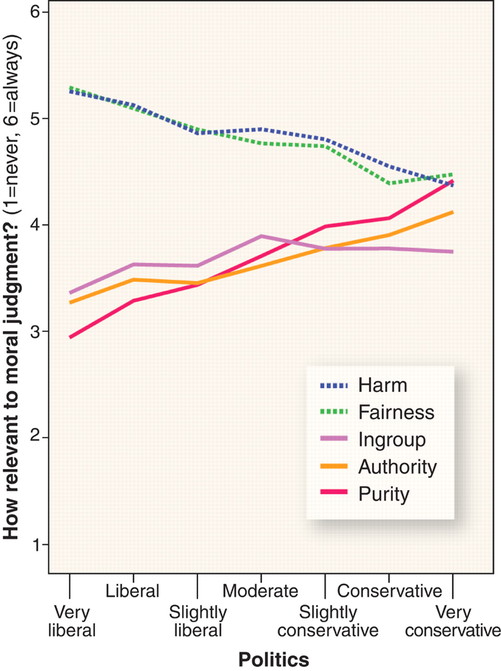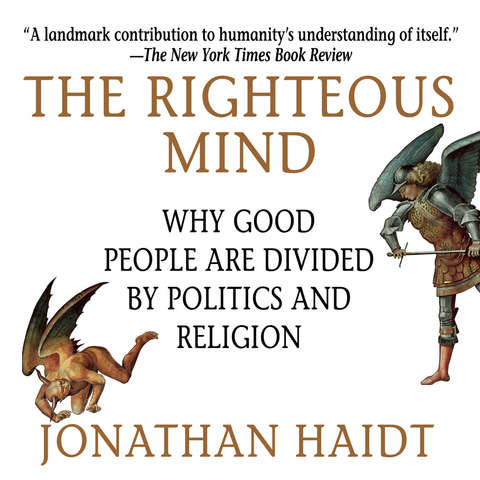|
Novels are great! They stir the soul. They share emotional journeys we can all relate to. It's great to read novels – which is probably why Stanford provides a list of three books -- usually novels -- for its incoming freshmen to read each summer.
My freshman year, the Three Books were M Butterfly, Annie John, and Old School, which was actually pretty spectacular -- especially since I'd just graduated from a New England boarding school. But let's be honest. Did any of these books change my life? Prepare me for college? Change the way I think? Improve my cognitive skills? No. But this one will: Because, yes. Stories are nice. However, I’m skeptical about how well they can equip you to thrive in the world around you. Especially considering that Jane Austen is hardly relevant to today’s social and scientific issues. In a world that's as contentious and divided over many issues, concerns about academic discourse and censorship on campus have become widespread. It is increasingly clear to me that the best possible book a freshman can read right now is The Righteous Mind: Why Good People are Divided by Politics and Religion, by moral psychologist and New York University Stern School of Business Professor Jonathan Haidt. Here’s why: 1. The amount you will be able to learn in college is directly limited by your ability to converse with and learn from others. In college, you will be challenged more than you ever have before. Part of that challenge involves sharing perspectives with a diverse body of students whose values and experiences are different from yours. It’s easy to think that you are right, and others are ignorant and wrong. But… if you think that, you’re probably wrong. (Hint: the more you think in absolutes, the less likely it is that you are a good thinker.) The Righteous Mind will help you understand how good people can disagree so strongly on moral issues. It will teach you how to understand and respect people who have different opinions from you, and how to objectively identify flaws and merits in their arguments. 2. It will teach you how to be persuasive. You think you’re persuasive because you know a lot of facts? You think you will win an argument because you have more or better data? You’re wrong. And don't even get me started on the meaningless jargon kids are so fond of these days. NOT. CONVINCING. See, a huge part of being able to convince others of the merits of your argument… is knowing how to talk to people who disagree with you. Jonathan Haidt devotes a significant portion of his book to discussing just this. For example, there are three ways to get people to think in an exploratory, rather than confirmatory, fashion. Haidt will teach you how to activate them. For another example, people with different political (and even biological) backgrounds differ on six moral dimensions.
Understanding the biological and cultural origins of these moralities will allow you to make your point in the most friendly, convincing manner.
3. It will teach you how to think. All humans -- even Nobel Prize winning scientists -- are prone to certain cognitive biases. Among these, the confirmation bias, or our tendency to seek out information that confirms our hypothesis, but not information that contradicts it. Haidt gives the example of a study in which participants are presented with a list of numbers -- say, 2, 4, 6. They are informed that the numbers follow a rule. The participant's goal is to develop a hypothesis for what that rule is, and then test it by proposing another series of numbers. Here's how that typically plays out. Experimenter: 2, 4, 6. Participant: Okay, I think the rule is even numbers that rise by two. So, 4, 6, 8? Experimenter: Yes. Participant: 100, 102, 104? Experimenter: Yes. Participant: So the rule is even numbers that rise by two? Experimenter: No. Participant: Hm. So maybe it's... any series of numbers that rises by two. So... 3, 5, 7. Experimenter: Yes. Participant: So any series that rises by two? Experimenter: No. The answer here was any series of numbers that goes in ascending order. Odds and evens don't matter. Increments don't matter. The fastest way to test your hypothesis is typically to look for evidence that disproves, rather than confirms, it. For example: P: Okay, I think the rule is even numbers that rise by two. So, 3, 5, 7? E: Yes. P: Hm, so I guess it doesn't have to be even numbers. Maybe it's series that rise by two. So, 3, 4, 5? E: Yes. P: That means it doesn't have to rise by two. See how much faster participants could have solved the problem if they weren't so prone to the confirmation bias? Haidt also discusses our tendency to ask, “Can I believe it?” when presented with information we like or want to agree with, but, “Must I believe it?” when we learn information we don’t like. This can have a serious impact on your learning, as well as moral and social judgements. (See also: The REAL Reason We Think Women Are "Crazier" Than Men In Relationships.) Understanding these and other biases will not only make you a better, more open-minded thinker… but it will also help you identify problems in your peers’, professors’ and textbooks’ arguments. It will help you see the world in a clearer, more scientific way. 4. It will teach you how science actually works. College science (including social science) is not high school science. The focus is less on content and memorization, and more on skepticism, criticism and process. Yet even in class, you might find yourself learning more about the final study design and results... than what sparked the idea, what the original design was, and how the authors' politics or beliefs played into the experiment. Jonathan Haidt is a seriously thoughtful, innovative and creative social scientist, and he could be an inspiration and role model for pretty much anyone. He will show you how to ask questions, build teams, and test hypotheses. *** For those reasons (and many others!), I highly recommend The Righteous Mind to every single incoming freshman ever. I actually think it should be required reading for every incoming freshman. Like, what do I remember about M Butterfly or Annie John? Hardly anything. But reading The Righteous Mind transformed my mind for the better. If you are a student looking for a book that will prepare you for college, this is it. If you are a parent, family member or friend looking for a graduation present or welcome-to-college present for a loved on, this is it. And if you are already in college, already graduated from college, active in politics, interested in social change, or simply want to have a friendlier family discussion over Thanksgiving dinner... it's never too late to learn.
7 Comments
Zeph
3/5/2017 07:03:12 pm
I wanted to thank you for this recommendation!
Reply
Zeph
3/28/2017 09:27:49 am
Wow. My partner finished the book and I just started reading it last night. I've read the first two chapters, and have decided to go back and use a highlighter and make notes, before going forward. It's cool that I can now discuss it (in more detail) with my partner as I read.
Reply
5/21/2018 12:20:47 pm
That would be fun -- I always WANT to discuss this book, but usually end up explaining it, since most of the people I've brought it up with haven't read it.
Reply
Zeph
3/28/2017 03:51:40 pm
I just came across Jonathan Haidt discussing run-away political correctness: https://www.youtube.com/watch?v=OI0lG4PEMkw
Reply
Zeph
5/19/2018 11:57:38 am
Hmm, seems like I'm the only one commenting here.
Reply
Zeph
5/19/2018 12:02:39 pm
(er - finding time not to continue reading the book I should have said).
Reply
5/21/2018 12:17:53 pm
Ugh -- sorry! I do try to reply to the comments I get on my blog, but for a while due to a weird settings thing, I stopped getting notifications about comments...
Reply
Leave a Reply. |
About the Author

Eva is a content specialist with a passion for play, travel... and a little bit of girl power. Read more >
Want to support The Happy Talent? CLICK HERE!
Or Find me on Patreon!
What's Popular on The Happy Talent:
Trending in Dating and Relationships:
What's Popular in Science: Playfulness and Leisure Skills:
Popular in Psychology and Social Skills:
Categories
All
|






























 RSS Feed
RSS Feed